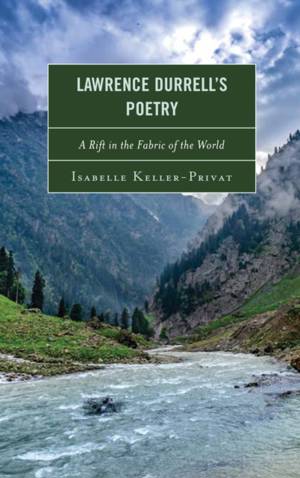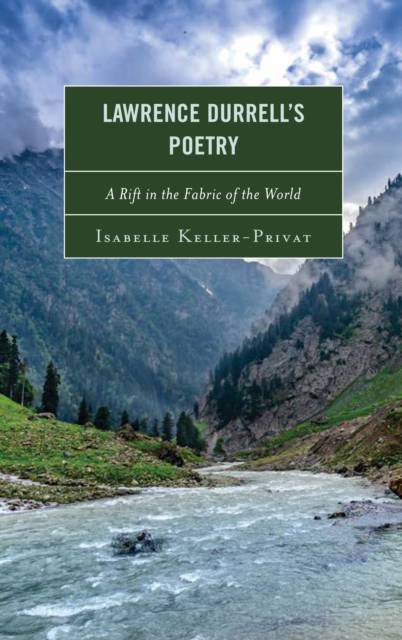
- Retrait gratuit dans votre magasin Club
- 7.000.000 titres dans notre catalogue
- Payer en toute sécurité
- Toujours un magasin près de chez vous
- Retrait gratuit dans votre magasin Club
- 7.000.0000 titres dans notre catalogue
- Payer en toute sécurité
- Toujours un magasin près de chez vous
Lawrence Durrell's Poetry
A Rift in the Fabric of the World
Isabelle Keller-Privat
Livre relié | Anglais
207,95 €
+ 415 points
Format
Description
Lawrence Durrell's Poetry offers an in-depth analysis of Lawrence Durrell's entire poetic opus, from his early collections in the 1940s up to his last one published in 1973. Thirty years of Durrellian poetry are brought together in order to unveil the genesis of Durrell's writing, both poetic and fictional.
Spécifications
Parties prenantes
- Auteur(s) :
- Editeur:
Contenu
- Nombre de pages :
- 338
- Langue:
- Anglais
Caractéristiques
- EAN:
- 9781683930624
- Date de parution :
- 25-04-19
- Format:
- Livre relié
- Format numérique:
- Genaaid
- Dimensions :
- 152 mm x 229 mm
- Poids :
- 662 g

Les avis
Nous publions uniquement les avis qui respectent les conditions requises. Consultez nos conditions pour les avis.






